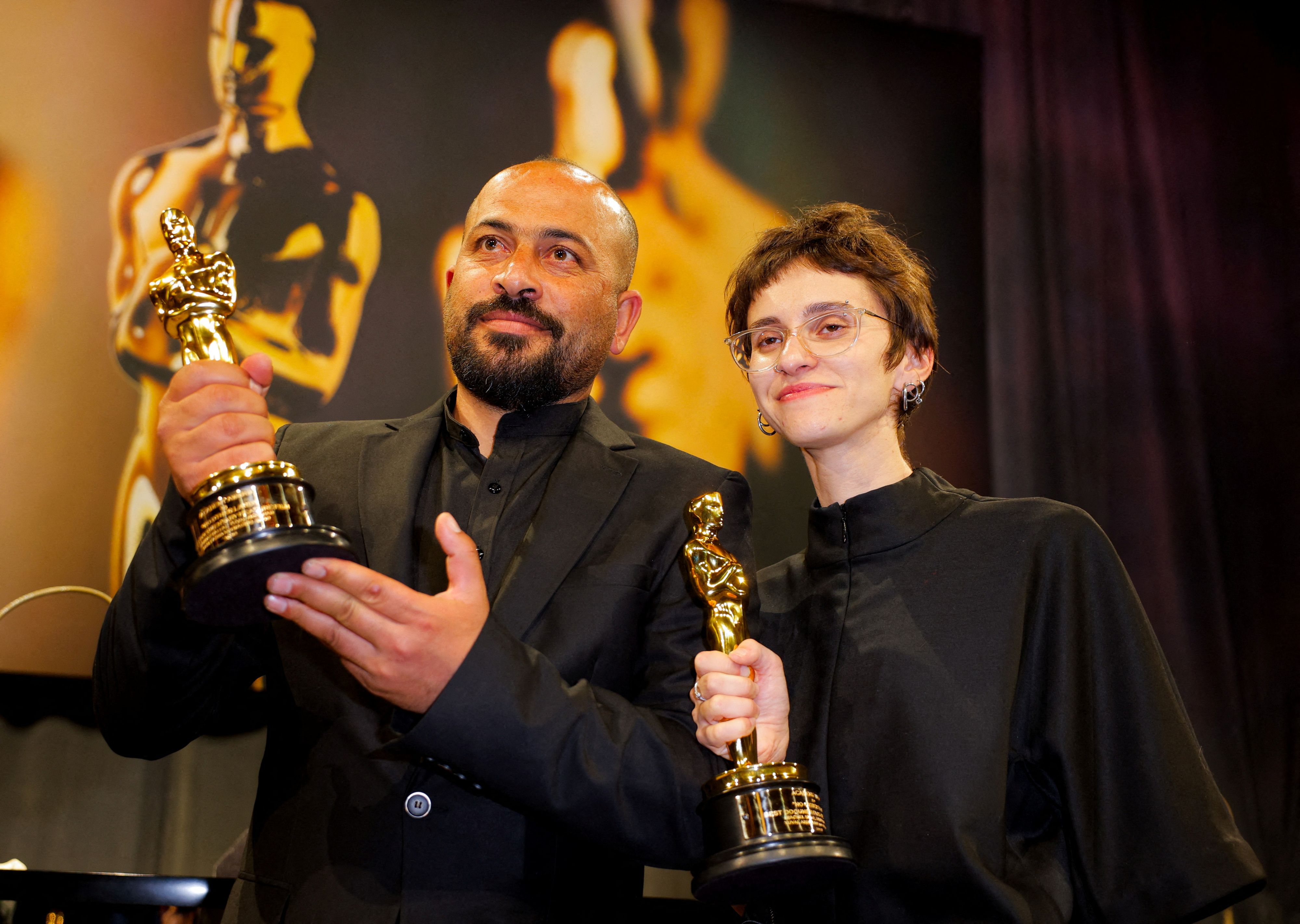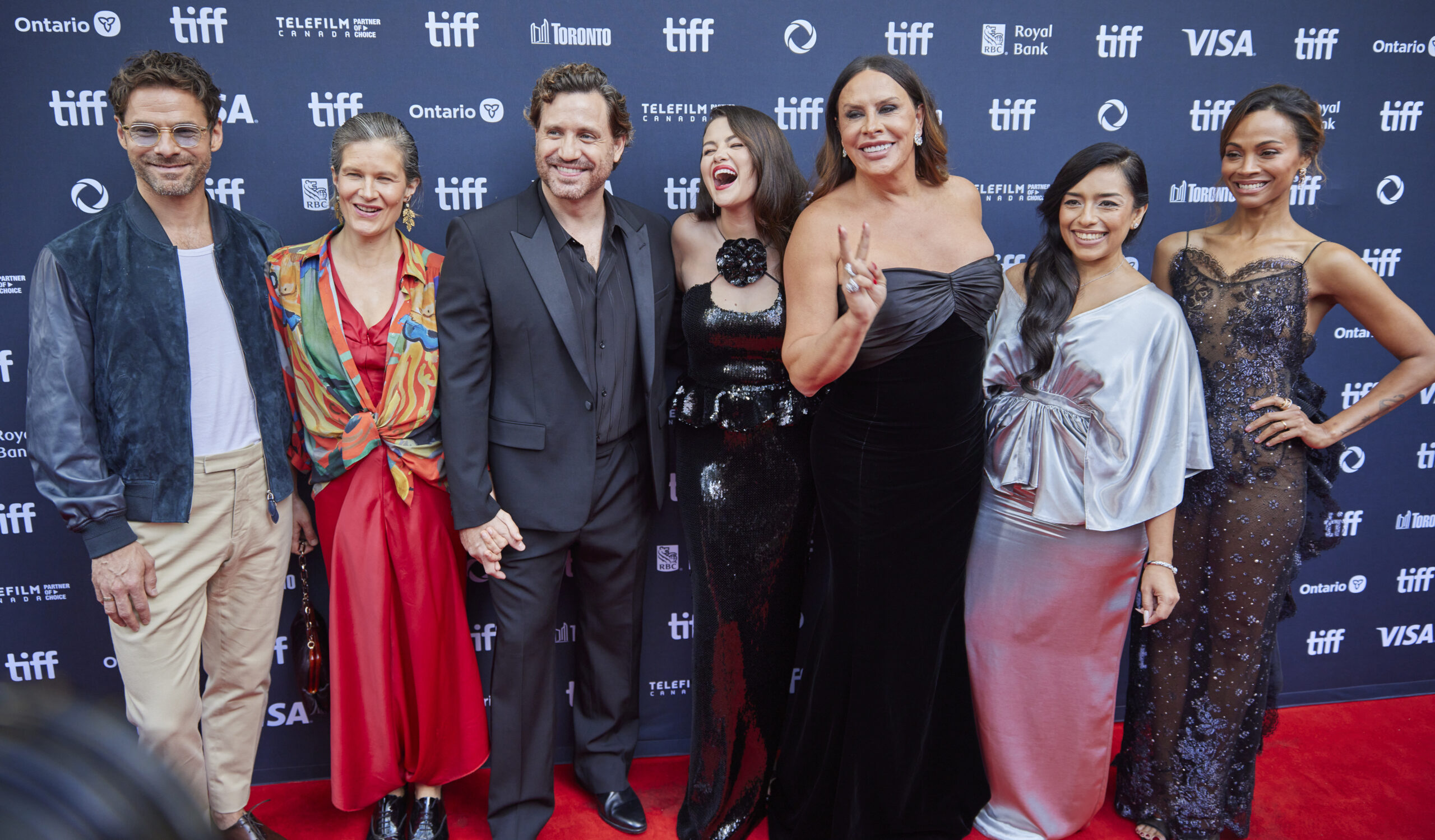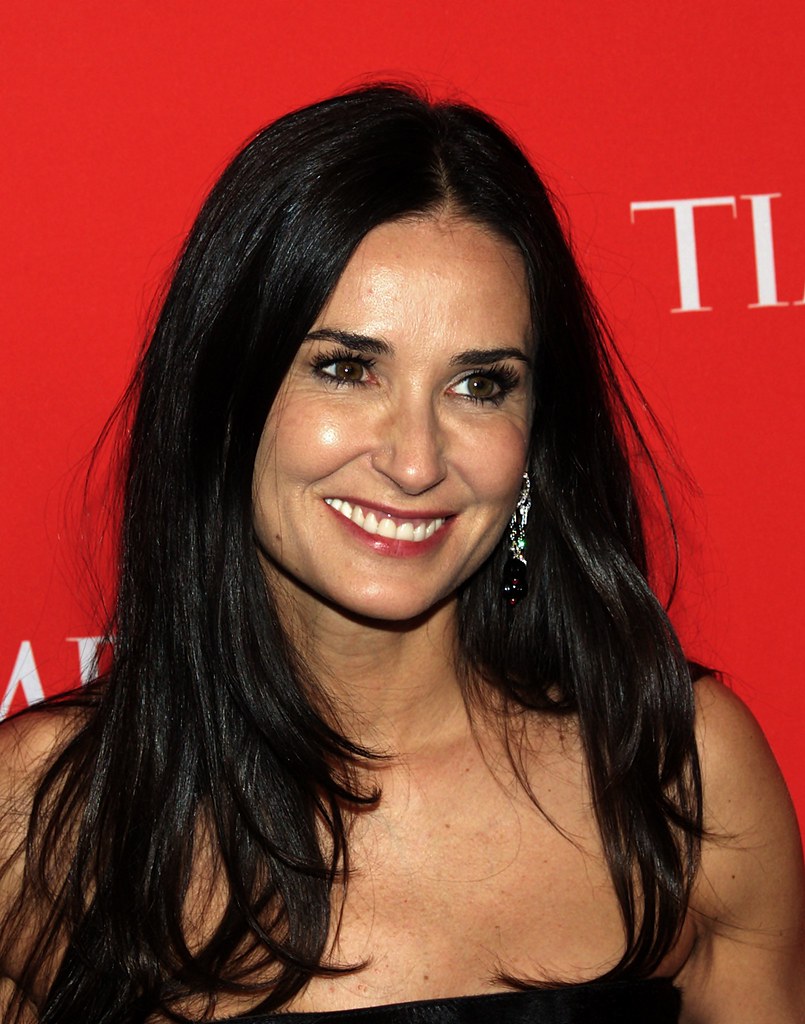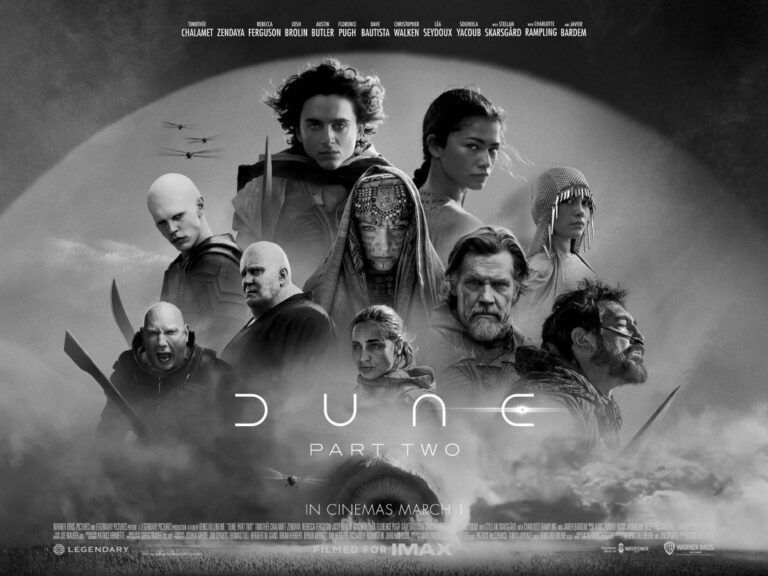
The 97th Academy Awards ceremony delivered a night of memorable moments, from rousing musical performances to heartfelt acceptance speeches, and, as always, its fair share of surprises. While the glitz and glamour of Hollywood’s biggest night captivated audiences worldwide, one narrative stood out above the rest: the triumph of director Sean Baker’s “Anora,” an indie romantic dramedy, described as a “Gen Z take on ‘Pretty Woman’,” which impressively swept five honors, including the coveted Best Picture award. Its victory, explicitly stated as “taking down more conventional Oscar contenders like ‘The Brutalist’ and ‘Conclave’,” undeniably signals a dynamic shift in what the Academy champions for its top prize, reinforcing Baker’s own sentiment: “Long live independent film.”
This victory for independent cinema, however, casts a fascinating light on a different category of films—the star-driven dramas that, in a previous era, might have been considered shoo-ins for the most prestigious awards. Today, these films, often lauded for their profound storytelling, powerhouse performances, and significant thematic depth, are increasingly finding their accolades in supporting categories, screenwriting, or technical achievements, rather than the ultimate Best Picture statuette. It’s a compelling trend that suggests the Academy’s evolving palate, perhaps favoring narratives that push boundaries in new ways or come from unexpected places, even when traditional dramatic excellence abounds.
In this analytical dive, we’ll explore 13 such star-driven dramas from the 97th Academy Awards that, despite their undeniable quality and celebrity firepower, illustrate this shift. These are the films that captured critical attention, earned significant nominations, and sometimes even secured wins in other categories, yet ultimately did not claim the Best Picture honor. They represent a collective testament to the enduring power of dramatic filmmaking and the extraordinary talent within the industry, even as the path to the biggest prize becomes less predictable. Let’s revisit these impactful stories and their stars, reflecting on their contributions to this year’s cinematic landscape.

1. **The Brutalist**”The Brutalist,” a historical epic, entered the awards season as a formidable contender, boasting a cast led by the esteemed Adrien Brody, who ultimately clinched his second Best Actor Oscar for his compelling performance. Brody’s win was a poignant moment, as he reflected on the “fragile profession” of acting and the gratitude he felt for still pursuing his passion. His portrayal of a Holocaust survivor resonated deeply, with Brody pointing out the significance of representing “the lingering traumas and repercussions” of war, antisemitism, and racism, and praying for “a happier and more inclusive world.”
Despite its heavy-hitting subject matter and a performance that clearly captured the Academy’s attention, “The Brutalist” was among the “more conventional Oscar contenders” that “Anora” notably “took down” for Best Picture. This outcome perfectly encapsulates the evolving landscape where even a film of such gravitas, driven by a celebrated actor, struggles to reach the pinnacle. It’s a reminder that while individual performances can be recognized for their brilliance, the collective vision for Best Picture might now lean in different directions.
The film’s excellence wasn’t limited to its lead actor, either. “The Brutalist” also secured two technical Oscars, winning for Original Score and Cinematography. These wins underscore its undeniable artistic merit and meticulous craftsmanship, proving its quality was recognized across multiple disciplines. With a strong ensemble that included Felicity Jones and Guy Pearce, and even having Timothée Chalamet as a nominated competitor for Best Actor, “The Brutalist” was a star-studded dramatic force that made a significant impact on the night, cementing its place as an Oscar-worthy film, just not for Best Picture.
Read more about: Reviving Legends: A Deep Dive into 12 Iconic Classic Car Reboots and Visionary Restorations

2. **A Real Pain**Kieran Culkin’s performance in “A Real Pain” was an undeniable highlight of the awards season, culminating in a well-deserved Best Supporting Actor Oscar. His win capped an “awards-season sweep,” solidifying his status as a standout talent. Culkin’s heartfelt acceptance speech, in which he humbly stated, “I have no idea how I got here. I’ve been acting my entire life,” resonated with many, as he acknowledged his manager and his co-star/director Jesse Eisenberg.
The context of Culkin’s win, particularly his humorous anecdote about a promise from his wife for a third or fourth child should he win an Oscar, further endeared him to the audience, showcasing the personal touch behind the professional triumph. This level of individual recognition for a performance in a drama highlights the power of a single actor to elevate a film, making it a truly “star-driven” project. His raw talent and charisma were central to the film’s impact.
However, despite Culkin’s remarkable achievement and the obvious quality of “A Real Pain” as a vehicle for such a celebrated performance, the film itself was not a major contender for the Best Picture prize. This situation clearly illustrates how a star-driven drama can achieve immense success for its acting talent without necessarily translating that into a top-tier film award, fitting precisely into the evolving trend where the Best Picture category seeks different qualities.
Read more about: Hit the Road, Not Your Wallet: America’s Top Affordable Car Camping Adventures for Under $25 a Night

3. **Emilia Pérez**”Emilia Pérez” emerged as a film of significant cultural resonance at the 97th Academy Awards, securing two major wins: Best Supporting Actress for Zoe Saldaña and Best Original Song for “El Mal.” Saldaña’s emotional acceptance speech was a powerful moment, as she cried out “Mommy!” to her mother and thanked her family for instilling in her everything “brave and outrageous and good.” Her victory was also historic, as she proudly announced, “I’m the first American of Dominican origin to win an Academy Award and I hope I won’t be the last.”
The film’s impressive showing, coupled with its star-studded cast that also featured Karla Sofía Gascón (a Best Actress nominee) and Selena Gomez (present at the Oscars), cemented its status as a major artistic achievement. The musical crime comedy-drama, with its unique narrative and strong performances, demonstrated a bold vision that captivated audiences and critics alike. Its recognition in both acting and music categories underscored its multifaceted artistic strengths, showcasing a vibrant and original cinematic voice.
Yet, despite these significant accolades and its prominent place among the Best Picture nominees, “Emilia Pérez” ultimately did not take home the grand prize. While its originality, stellar performances, and musical flair were celebrated, the Best Picture Oscar went to “Anora,” an indie dramedy. This outcome serves as a compelling example of how a star-driven film with strong critical backing and multiple wins in key categories can still find itself bypassed for the top honor, reflecting the changing dynamics of the Academy’s preferences.
Read more about: Red Carpet Unfiltered: Power Struggles, PR Scuffles, and the Industry’s Unseen Workforce

4. **Conclave**”Conclave,” a compelling papal thriller, proved its narrative prowess by winning the Oscar for Best Adapted Screenplay. Peter Straughan’s poignant dedication of his win to his daughter, with a touch of humor, highlighted the deeply personal connection behind the creation of the film’s engaging story. The film’s intricate plot and character development were clearly recognized as exemplary, demonstrating its strength in storytelling and thematic depth.
Furthermore, “Conclave” boasted star power with Ralph Fiennes earning a Best Actor nomination for his performance, underscoring the film’s ability to attract and showcase top-tier talent. The presence of such a distinguished actor, combined with a critically acclaimed screenplay, firmly places “Conclave” in the category of a star-driven drama designed to provoke thought and engage intellectually. It’s the kind of film that, in previous years, might have been a stronger contender for Best Picture.
Indeed, pre-Oscar buzz indicated “Conclave” as a “best picture favorite” and a strong bellwether, having “upended ‘Anora’ to win best ensemble” at the Screen Actors Guild Awards and secured “a win for best movie at the British Academy Film Awards (BAFTAs).” However, despite this momentum and critical acclaim, the Best Picture Oscar ultimately went to “Anora.” This narrative perfectly illustrates the central theme: even a sophisticated, star-driven drama with significant industry backing and prior awards success is now “rarely find winning Best Picture at the Oscars today.”
Read more about: Tom Hanks’ Flops and Hollywood’s Most Expensive Mistakes: A Deep Dive into Box Office Bombs

5. **I’m Still Here**Brazil’s “I’m Still Here” achieved a significant triumph by winning the Oscar for Best International Feature Film, a testament to its powerful global storytelling and universal appeal. The film’s victory was particularly notable as it “takes down leading nominee ‘Emilia Pérez’ and animated favorite ‘Flow’,” showcasing its strength among a competitive field of international productions. This win highlights the film’s profound narrative and its ability to connect with diverse audiences and critics alike.
Further emphasizing its star-driven nature and artistic merit, Fernanda Torres received a Best Actress nomination for her role in “I’m Still Here.” Her nomination underscores the captivating performance at the heart of this international drama, demonstrating how individual talent can elevate a film and create a memorable cinematic experience. Such a combination of international acclaim and lead acting recognition makes it a prime example of cinematic excellence.
Despite its critical success as Best International Feature Film and the strong performance by its lead actress, “I’m Still Here” was also among the films nominated for Best Picture that did not win. Its journey from a powerful international drama with a celebrated star to an Oscar winner in its specific category, yet not the overarching Best Picture, underscores the increasing specialization of awards. This trajectory reflects a broader trend where profound, star-driven international dramas, while celebrated, often face an uphill battle for the ultimate top prize in the evolving Academy landscape.
Read more about: Hollywood Heartbreakers: 14 Major Actors Who Absolutely Refused to Share the Screen Again

6. **The Substance**”The Substance,” a “bonkers body horror flick with Demi Moore and Margaret Qualley,” made its mark at the 97th Academy Awards by winning the Oscar for Best Makeup and Hairstyling. While seemingly a technical award, the film’s genre and the transformative nature of its visuals are intrinsically linked to its dramatic impact and the performances within it. This win acknowledged the film’s bold aesthetic and its ability to push boundaries, particularly in a genre that isn’t typically recognized at this level.
The film’s “star-driven” credentials are unquestionable, with Demi Moore at its core. Moore’s involvement brought with it a compelling “comeback narrative” and significant buzz, marking her strong return to the screen in a demanding role. Margaret Qualley’s presence further solidified the film’s acting talent, drawing considerable attention to its dramatic weight and the intensity of its performances. Both stars contributed to a film that was clearly designed to challenge and provoke.
Notably, “The Substance” was identified as an “acclaimed body horror movie” with “key filmmaking and acting nods,” even being floated as a “best picture hopeful.” However, despite this critical appreciation, its powerful leading performances, and a significant technical win, it ultimately did not secure the Best Picture Oscar. This outcome perfectly illustrates how even a genre-bending, star-driven drama that generates considerable discussion and artistic recognition can find itself outside the winners’ circle for the Academy’s highest honor, indicating a shift in what defines a Best Picture winner today.
Read more about: Elevate Their Look: 14 Must-Have Scarves & Wraps for Bridesmaids to Perfect Any Wedding Day Ensemble

7. **A Complete Unknown**”A Complete Unknown,” a music biopic, garnered significant attention at the 97th Academy Awards, largely due to the magnetic presence of Timothée Chalamet, who was nominated for Best Actor for his role. Chalamet’s performance was clearly impactful, with the context noting that a “Timothée Chalamet victory wasn’t to be” for Best Actor, indicating his strong standing in the race. His celebrity and talent undoubtedly positioned this film as a prime example of a “star-driven drama.”
The genre of music biopics has historically been a strong contender at the Oscars, often providing a platform for acclaimed performances and intricate storytelling. “A Complete Unknown” fit this mold perfectly, offering a blend of biographical insight and dramatic narrative, underscored by Chalamet’s central role. The film’s inclusion among the Best Picture nominees further attested to its quality and its potential to be a major award winner.
However, despite its compelling subject matter, the critical buzz surrounding Chalamet’s performance, and its status as a Best Picture nominee, “A Complete Unknown” ultimately did not win the top prize. This situation highlights a trend where even films that align with traditional Oscar-friendly genres and feature A-list stars are increasingly facing formidable competition from less conventional contenders for Best Picture. The film’s narrative, though powerfully told, underscores the evolving criteria for what captures the Academy’s ultimate favor in the current cinematic climate.
The first section highlighted seven star-driven dramas that, despite their immense quality, missed the Best Picture prize at the 97th Academy Awards, signaling a notable shift. Now, we delve deeper into this evolving cinematic landscape, exploring six more powerful films from this year’s Oscars. These features, rich with talent and artistic ambition, further exemplify why the path to Best Picture is increasingly less conventional, even for projects that resonate profoundly with audiences and critics alike.
Read more about: Unpacking the Digital Deluge: Simple Secrets to How Social Media Platforms Filter Out Fake News for a Wiser You

8. **Dune: Part Two**Denis Villeneuve’s “Dune: Part Two” stormed into the awards season as a colossal force, captivating audiences with its epic scale and breathtaking visuals. Its presence among Best Picture nominees was undeniable, representing the kind of grand cinematic spectacle that still earns significant recognition. This top-prize nomination underscored its widespread appeal and technical brilliance, proving ambitious storytelling on a massive canvas remains a potent draw.
The film’s technical prowess was spectacularly acknowledged, as “Dune: Part Two” proudly took home two Oscars. It seized Best Sound, with presenters Miley Cyrus and Miles Teller highlighting its intricate audio landscape. Additionally, it won Best Visual Effects, a testament to the seamless integration of fantastical elements and the incredible work by Paul Lambert, Stephen James, Rhys Salcombe, and Gerd Nefzer.
Beyond its wins, “Dune: Part Two” was also celebrated for its craftsmanship. Greig Fraser received a Best Cinematography nomination, acknowledging his masterful capture of the alien world. The film’s immersive environments were further recognized with a Best Production Design nomination for Patrice Vermette and Shane Vieau. Even Conan O’Brien joked about the iconic “Dune” sandworm, solidifying its cultural impact as a technical marvel, even if Best Picture remained elusive.
Read more about: Zendaya’s Unstoppable Reign: How a Disney Star Became a Global Fashion and Cultural Icon, Setting New Standards for a Generation

9. **Wicked**The highly anticipated musical “Wicked” made a vibrant splash at the 97th Academy Awards, securing a spot among the Best Picture nominees. This accomplishment signaled its significant cultural footprint and the Academy’s appreciation for its elaborate production. Its stunning visual and sartorial artistry garnered immense praise, distinguishing it as a contender that blended spectacle with compelling performances.
“Wicked” indeed brought home two well-deserved Oscars, celebrating its exceptional contributions to cinematic design. Nathan Crowley and Lee Sandales were honored with Best Production Design, a clear nod to the film’s visually rich world-building. Furthermore, Paul Tazewell made history winning Best Costume Design, becoming the first Black man to achieve this feat, highlighting the film’s intricate and dazzling wardrobes.
The star power driving “Wicked” was undeniable, with Cynthia Erivo and Ariana Grande earning nominations for Best Actress and Best Supporting Actress respectively. Their talent was on full display performing a “rousing musical medley” to kick off the night, earning a standing ovation. Despite multiple nominations, key wins, and even a joke from Conan O’Brien, “Wicked” ultimately joined films that, despite their magic and stars, don’t always clinch the ultimate Best Picture prize today.
Read more about: Studebaker Avanti: Unearthing the Saga of the ‘World’s Fastest Production Car’ and its 1960s Legacy

10. **Nickel Boys**Among the Best Picture nominees at the 97th Academy Awards was “Nickel Boys,” a film whose inclusion on this prestigious list affirmed its profound impact and the power of its storytelling. While specific individual awards weren’t detailed, its nomination for the top prize speaks volumes about the Academy’s recognition of its overall cinematic merit and thematic importance. It represented a vital entry into the year’s dramatic offerings.
The film, undoubtedly a star-driven drama, featured the talent of Aunjanue Ellis-Taylor, whose presence added significant weight and acclaim to the project. Ellis-Taylor was notably among the first stars to engage with the vibrant atmosphere of the Dolby Bar, enjoying hors d’oeuvres. This detail underscores the caliber of talent associated with “Nickel Boys” and its integration into the star-studded fabric of the Academy Awards night.
“Nickel Boys” stands as a poignant example of a film that garners the Academy’s highest nomination, signaling its critical relevance and powerful narrative. Yet, it navigates a landscape where the Best Picture winner increasingly comes from unexpected places. Its journey showcases the enduring strength of dramas exploring significant themes, underlining its quality and star-driven core, even without additional wins on the night.
Read more about: Seriously, Where Did They Go? Revisiting 11 Beloved Groups That Vanished From Our Radios

11. **Sing Sing**”Sing Sing” emerged as a significant star-driven drama at the 97th Academy Awards, primarily propelled by the tour-de-force performance of Colman Domingo. His well-deserved nomination for Best Actor positioned the film squarely in the spotlight, cementing its status as a powerful vehicle for exceptional dramatic talent. Domingo’s portrayal clearly resonated with the Academy, placing him among the elite contenders.
Beyond Domingo’s compelling acting nod, “Sing Sing” also received recognition in the musical categories, with “Like A Bird,” penned by Abraham Alexander and Adrian Quesada, earning a Best Original Song nomination. This dual recognition in both acting and music highlights the multifaceted artistic strengths of the film, showcasing its ability to weave together a powerful narrative with a memorable soundtrack.
Colman Domingo’s undeniable charisma extended beyond his performance; he was affectionately dubbed “the behind-the-scenes Oscar MVP” and “the most popular guy in the Oscar crowd.” Throughout the evening, he engaged with a galaxy of stars, including Lupita Nyong’o, Ariana Grande, Ethan Slater, Cynthia Erivo, Ralph Fiennes, Jeff Goldblum, and Yura Borisov. This widespread admiration, rooted in his impactful work in “Sing Sing,” illustrates how a star-driven drama can elevate an actor to immense prominence, making the film a memorable awards entry.
Read more about: Elevate Their Look: 14 Must-Have Scarves & Wraps for Bridesmaids to Perfect Any Wedding Day Ensemble

12. **The Apprentice**”The Apprentice” made a notable impact at the 97th Academy Awards, primarily through the exceptional performance of Sebastian Stan, who garnered a prestigious Best Actor nomination. This significant recognition for Stan’s work immediately positioned “The Apprentice” as a compelling star-driven drama, highlighting a performance that resonated deeply with the Academy and critics alike. His nomination underscored the film’s dramatic weight and its capacity to provide a powerful showcase for an actor.
The film’s very title, “The Apprentice,” suggests a narrative focused on a central figure, further emphasizing its “star-driven” nature and the pivotal role of its lead actor. Sebastian Stan’s nomination placed him among a formidable lineup of talent vying for the Best Actor Oscar. While other specific nominations were not detailed, a lead acting nod for a drama often speaks to the overall caliber of the production, making it a critical talking point.
In an era where the Best Picture race is increasingly diverse, “The Apprentice,” with its powerful lead performance, represents the kind of dramatic filmmaking that might traditionally have been a stronger contender for the ultimate prize. Its journey exemplifies how compelling star-driven narratives, even with an acclaimed actor, now often find primary accolades in individual categories rather than sweeping top film honors, illustrating the article’s central theme.
Read more about: Burt Reynolds, Enduring Icon of Film and Television, Dies at 82

13. **Elton John: Never Too Late**The music biopic “Elton John: Never Too Late” carved out its place at the 97th Academy Awards with a significant nomination for Best Original Song. The track, “Never Too Late,” was a collaborative effort from iconic names including Elton John, Brandi Carlile, Andrew Watt, and Bernie Taupin. This nomination immediately highlighted the film’s star-driven nature, centered around a legendary musical figure, and underscored its artistic merit in the competitive songwriting category.
Music biopics are inherently star-driven, often exploring the lives and careers of celebrated artists. “Elton John: Never Too Late” fit this mold perfectly, using the enduring appeal and story of Elton John to craft a compelling dramatic narrative. The nomination celebrated not only the film’s musical composition but also its thematic resonance and emotional depth, demonstrating how original songs can powerfully enhance a film’s storytelling.
Further reinforcing the film’s connection to the glittering event, co-writer Bernie Taupin was spotted mingling at the Oscars, alongside Brandi Carlile, engaging in animated conversations and posing for photos. Their presence underlined the real-world celebrity power behind the film’s nomination and its place within the larger tapestry of the awards ceremony. “Elton John: Never Too Late” illustrates the contemporary trend where a star-driven drama earns prestigious recognition in specialized categories but may not win Best Picture.
Read more about: The Philanthropic Elite: Unveiling 12 of the Most Impactful Celebrity Non-Profit Foundations
In retrospect, the 97th Academy Awards undeniably heralded a fascinating shift, with “Anora” triumphantly sweeping the major awards. The narratives of these thirteen star-driven dramas—from epic sci-fi sequels and vibrant musicals to intimate biopics—collectively paint a vivid picture of an industry in transition. While their profound storytelling, powerhouse performances, and meticulous craftsmanship captured attention and secured significant accolades, they ultimately demonstrated that the path to Best Picture has diversified. It’s less about conventional dramatic excellence now. This year’s Oscars were a testament to the enduring power of these films, even as the biggest prize sailed to new horizons, ensuring these impactful, talent-rich stories will certainly not be forgotten.



